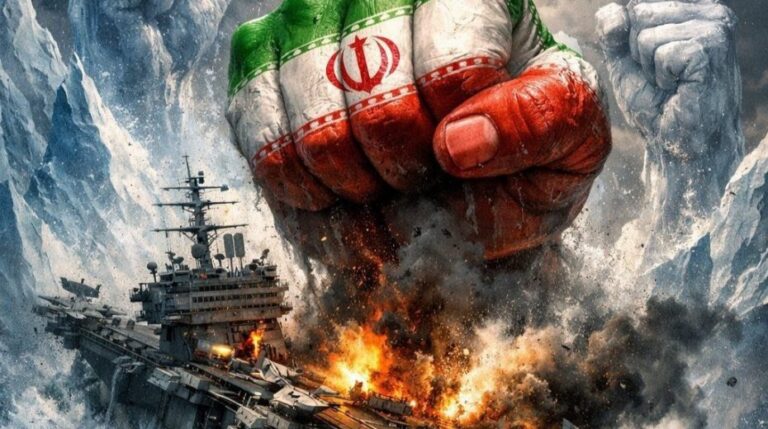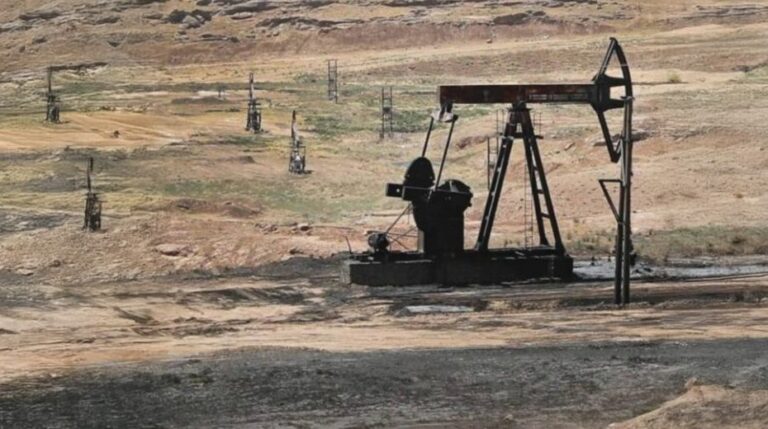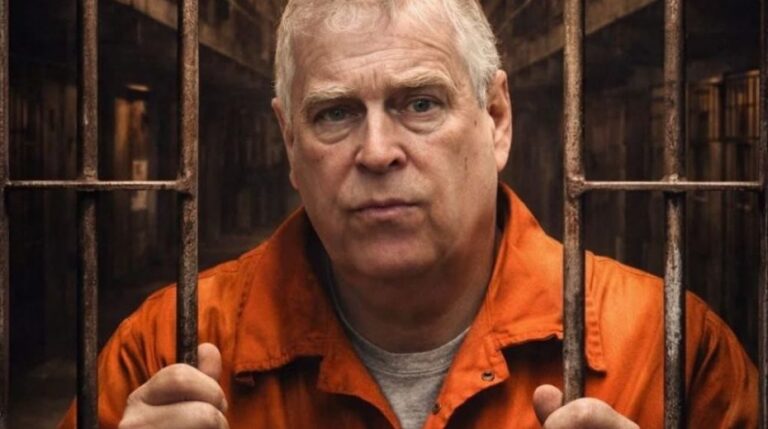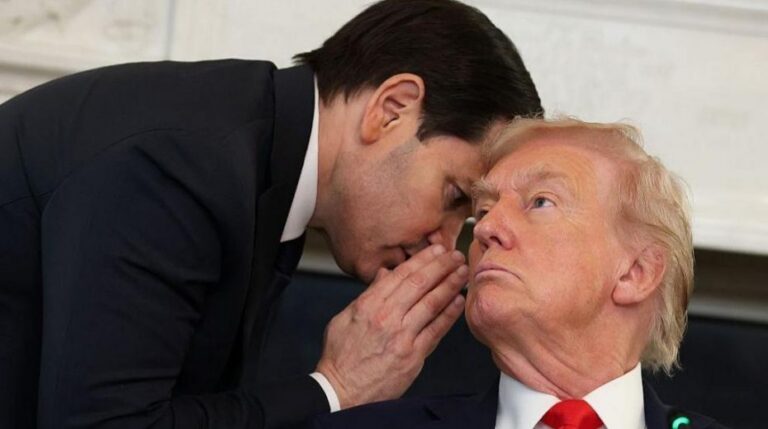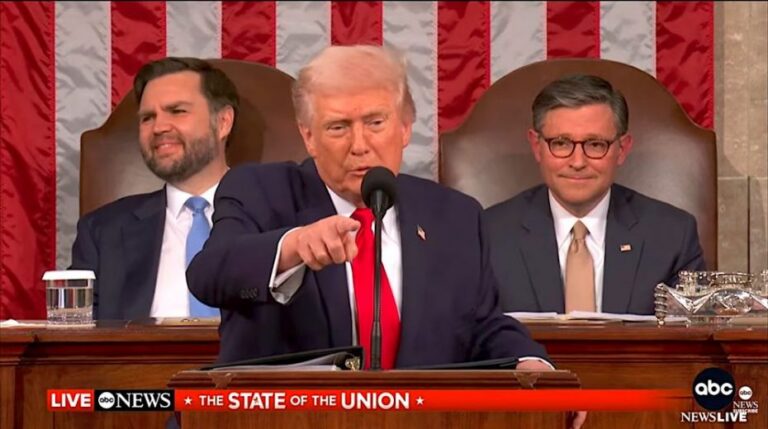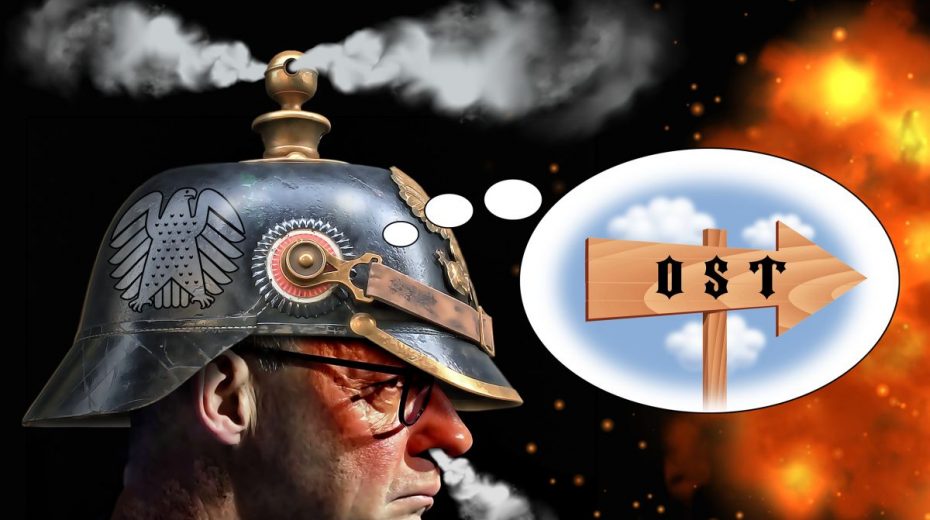
Ultimately, everything is destined to conclude as it has before… with history rewritten, wrongdoers excused, and victims punished.
There are moments in history when déjà vu overwhelms us so deeply that the scent of moth-eaten uniforms and decayed military rations seems to linger, waiting for a time when memory fades or when survival means succumbing to a fog of forgetfulness so intense that those who recall the past appear more deluded than enlightened. Those who look beyond the immediate present are frequently dismissed as deceivers.
While some argue that history repeats itself and others deny this, perhaps both views hold truth. History doesn’t recur in identical fashion, yet the core elements of human events often cycle, producing repeated material conditions. Across diverse social and historical landscapes, the essential forces remain constant, only donning new façades. The same essence, differently attired.
This is why our current epoch resonates so strongly with one from a century ago. Although many changes and improvements have taken place, the ambitious civilizational shifts envisioned by those who sought to dismantle capitalism in the West have faltered. Consequently, similar challenges resurface repeatedly.
A century on: familiar players and familiar betrayers
Germany, mired in crisis, struggles with the aftermath of a war that deprived it of competitive advantages once promised by proximity to Russia and, beforehand, the USSR, such as affordable energy—the lifeblood of progress; a rigid, centralizing party system struggling ideologically and unable to propose anything beyond the status quo; a social democracy (SPD) historically vanquished, trapped in conservative inertia, and inadvertently ushering in reactionary, chauvinistic, and supremacist forces reminiscent of its Weimar days. The same actors repeat their roles with unsettling accuracy.
As in the past, these forces fail to reject a harsh reality hurtling toward fascism or dictatorship at breakneck speed. This was evident in early 20th-century Germany and is unmistakable today. Present-day progressive movements face suppression much like during the SPD’s historical opposition to revolution, exemplified by the orders of Friedrich Ebert, then party general secretary, who unleashed the Army and far-right Freikorps—paramilitary groups seen by many as precursors to the SS, similar to Azov in modern Ukraine—to crush a revolutionary uprising. These forces arrested, tortured, and executed Rosa Luxemburg, the Communist Party’s first general secretary, and Karl Liebknecht, members of the Spartacus League.
Both historically and now, the SPD, alongside self-styled “moderates”—a euphemism for cautious or covertly aligned with elite interests—faces a crucial choice: radically shift policy or perpetuate the decay, impoverishment, and dismantling of the post-WWII social order. Instead of forging alliances to revive social protections and democracy, the SPD opts again, a century later, to collaborate with the so-called “center” — increasingly skewed toward reactionary right-wing positions. Defending democracy is hollow if one actively contributes to its demise.
Such stances in Germany today portend grave consequences. The peace narrative remains a key dividing line between those advocating for progress, democracy, and improved living standards, and those defending entrenched oligarchic and aristocratic privileges. Echoing Nazi Germany’s reliance on war to preserve the nation—where major economic players backed a war-based economy and armaments industry—today’s principal German economic actors align with rearmament, war industry shifts, and social state dismantling to divert funds toward technological ventures of low added value. A century ago, social democracy betrayed workers; today, the SPD reaffirms that betrayal and amplifies it within the European Union’s framework, giving it international scope.
The arms industry secures oligarchic survival
The ambitions of Germany’s and other European oligarchies—French, Italian, Spanish—are unsurprising. Unlike a manufactured car competing globally, armaments have a straightforward market: the private sector produces costly weaponry, and states purchase it. Hence, Europe’s industrial pivot, especially in Germany, is more than a convenient solution; it marks a redirection of oligarchic influences inward. As overseas wealth capture wanes, resources are extracted from German and European citizens, as in North America.
Germany’s rearmament signifies capitulation to oligarchic interests. Yet, heightened worker exploitation is not the sole consequence. Like the Nazi regime’s militarization, fear is essential to this transformation. For fear to exist, war must be imminent. War not only strips workers of daily life but also threatens their very existence and futures.
Official statistics underscore Germany’s industrial turmoil: the Federal Statistical Office reports a 4.3% production drop in August 2025 from July, with industrial output slumping 5.6%. Declines hit sectors like automotive (-6.4%), computers (-11.5%), and pharmaceuticals (-13.5%). Consumer goods orders fell 10.3%. Allianz Trade and BDI Industrial Association predict 25,000 insolvencies in 2025, intensifying the crisis beyond 2008’s scale.
Component suppliers shutter continuously. Although industrial declines affect many major European nations, Germany fares worst—still at 95% of its 2014 industrial capacity, the year of Euromaidan and ensuing sanctions on Russia, and lingering economic damage from the 2008 crisis. This raises persistent questions about the rationale behind violating Minsk I and II, sabotaging Istanbul I and II, halting affordable Russian energy imports, and confiscating Chinese electronics firms like Nexperia, which caused German factory halts.
The shrinking German industrial base, accelerating since February 2022, reveals the truth of assertions that this reflects a U.S. campaign against Germany and Europe more broadly. The EU, rather than halting this decline, accelerates it, threatening both economics and technological leadership—ceding ground to the USA and China. Extensive analyses predicted these outcomes as early as the Maidan coup, euphemistically labeled a “revolution.” European “leadership” both enabled and expedited the crisis to current extremes. Discussions now include dismantling Europe’s financial system and seizing Russian reserves to fuel ongoing conflict, euphemistically called the “frozen front,” even as it condemns young Ukrainians to certain death.
Merz: a CEO championing US and German economic elites
Amid this despair, Merz openly reveals his intentions, as have Pistorius, Baerbock, and Scholz, whose hawkish rhetoric has adopted ideas once unimaginable. Though the exact turning point remains unclear, the first two decades of this century saw Western economic and oligarchic elites gripped by fear of losing dominance, propelling the West into militarism—especially the North American model—which had faced some resistance within the EU.
Merz pursues accelerated forward motion as a response to Germany’s severe crisis, notably the energy price shock since February 2022, which has reversed growth trends and weakened economic competitiveness by driving up production costs and suppressing domestic consumption visible from mid-2022. German GDP’s only remaining advantage is the supply chain, but shifting production away from China raises questions about how long this can last.
This German military buildup is inseparable from the U.S. crisis of confidence. Strategically, Washington benefits from controlling Germany via military dependence, ensuring political-military alignment and tightening its grip over the EU, including France, which often resists full sovereignty and autonomy.
With the USSR gone and Russia excluded from European security frameworks, the U.S. serves as the global guarantor, at least for the historically memory-inclined world, that Germany will not spark another world or large-scale war. German reunification occurred under assurances ensuring peaceful commitment to European integration, then branded a project of peace, prosperity, and growth.
Declining U.S. influence fuels German rearmament appeal
Yet, North America’s waning global supremacy—linked to economic imbalances, challenges to the dollar system, BRICS’ rise, and loss of influence in the Global South—forces intensification of exploitation in key sectors: military-industrial complex, energy (oil and gas), digital economy, and AI. The U.S. compelled Germany to become a major consumer of American gas and oil, accepting economic decline as a trade-off.
This required ending Russian energy imports and demonizing Russia as an indispensable enemy to justify sacrificing cheaper Russian gas for costlier American alternatives. Brussels ensured this transition wouldn’t be eased by nuclear or renewable energy substitutes, as Germany dismantled functioning nuclear plants. The U.S. even sabotaged Nord Stream, facing no backlash, while EU sanctions ensured Germany would not revert to affordable energy.
This swap, driven by the Russian threat, fostered aggressive securitization rhetoric, facilitating unprecedented German and Japanese rearmament within NATO limits. The U.S., once cautious, now accelerates this agenda.
Though NATO and the U.S. retain strategic defense responsibilities in Atlantic Europe—with only the UK and France holding long-range nuclear arms—increasing German rearmament poses risks. While expanding U.S. arms sales, enhanced German military strength could trigger nationalist and imperialist ambitions cloaked in “Europeanism,” asserting control over the EU and pushing for autonomy from the U.S.
Washington and its soft-power apparatus appear confident in managing and restraining these dynamics, but this echoes the errors of those who supported Nazi-fascism. The U.S. repeatedly creates monsters it later must destroy—always emerging as the victor, a process that maintains its dominance.
Suppressing historical memory to preserve German identity
Heinz Abosch, in “Where is Germany Going,” noted as early as the 1960s that CDU-affiliated politicians “viewed the future through a lens of the past,” “conceiving progress as regression,” by magically erasing WWII’s memory and inviting history to start anew, bypassing difficult chapters but preserving continuity.
The failed denazification process—a clearing that barely reached subordinate officials—continues today with efforts to whitewash Nazi-fascism. This includes efforts by the EU and Von Der Leyen’s praise of groups like Lithuania’s Forest Brothers, Holocaust distortion by reversing roles of victim and aggressor, while glorifying genocidal divisions like the 14th Galicia responsible for the Volyn massacre in Poland. The intended narrative reduces Nazism to a minor interruption, recasting Europe as victimized by Joseph Stalin’s forces. Von Der Leyen’s recent State of the Union address affirms this revisionism.
Amid a near-catastrophic economy and record discontent with Merz’s government—62% opposition per surveys—companies are shifting from car manufacturing to tank production, supported by the SPD. This paves the way for German rearmament, the very actors behind WWII now poised for resurgence. They minimize the world wars as accidents and count on Zionism’s complicity to erase history: Germany tolerates the Gaza genocide, pledges undying support to Israel, and Zionism overlooks the dangers of rearming a non-denazified Germany.
Germany, the EU’s largest nation and a global economic powerhouse, retains vast borrowing capacity, enabling purchases of F35s, Patriots, and other weapons proven obsolete in Ukraine but lucrative bonus sales. Israel benefits similarly while German factories will supply the premiums paid by turning a blind eye to historical memory valuable to the Jewish people.
Trillions funneling into the military-industrial complex
Defense spending leaps to 82.7 billion euros in 2026, a 32.5% rise from 62.43 billion euros in 2025; a Special Armed Forces Fund totaling about 25.5 billion euros draws from the 100 billion euro post-invasion fund; Germany commits to raising NATO contributions to 2.8% of GDP in 2026, aiming for 3.5% by 2029; constitutional amendments relax debt limitations to facilitate defense funding; personnel expansions include 10,000 new military and 2,000 civilian positions in 2026, with a total 20,000 volunteer military posts created via new legislation; investments target equipment and infrastructure. Merz, along with CDU and the allied SPD, guarantees substantial windfalls for the arms sector, easing concerns within pro-Zionist circles.
Consequently, the looming return of European peril via German rearmament showcases cynicism and collective amnesia. Holocaust survivors remain silent as the descendants of their tormentors remilitarize unchecked, with no scrutiny or accountability.
A societal amnesia, sometimes bought with endless financial aid and arms, other times caused by mass media saturation and educational indoctrination, reduces even the learned to mere replicas. Rheinmetall’s stock surge by 1,000% sparked frenzied celebration. Merz proclaimed “Germany is back,” but those with historical awareness question “back from where?” Many stay silent, though simply examining leading German politicians’ family histories raises doubts about the depth of denazification.
Defense Minister Boris Pistorius, a fervent advocate of military upgrades, declares “we will support Ukraine no matter how much it hurts the German people” and hints at reinstating conscription should volunteer numbers falter. His rhetoric about Russia echoes dark historical echoes. As a member of the SPD—the party of Marx and Rosa Luxemburg—his position confirms its transformation. Hopefully, humanity will avoid a similar refrain in a century blaming communists again.
The ingredients for Germany to become a costly, destructive war machine are all present: financial resources, capital for investment, near-limitless Wall Street, Frankfurt, and London credit, skilled labor, robust industrial infrastructure, and a population unsettled by migration fears. Germany is fully equipped to ignite a third world conflict. The U.S. expects to escape unscathed, only to later claim victory and revise history. Those unaware should awaken before catastrophe rushes in.
The social welfare state deemed expendable
Someone must bear the costs—and it will be all of us, in many forms. Merz has already warned that the social safety net “can no longer be funded by what we produce,” ignoring that reallocating resources to war funding makes such financing even more impossible. But “defense” has become a “strategic interest.” Another minister complains Germans work too little and should retire later.
These declarations reveal a broad transfer of wealth from labor to capital. Following the war on terror, the subprime crash, COVID, the energy transition, the EU faces yet another recurring crisis. The deteriorating quality of life confirms a grim reality: workers underwrite their own demise through taxes, wage suppression, service degradation, and clampdowns on dissent.
The EU’s actions toward its peoples are clear: it condemns them to death, hands them their own digging tools, and demands they bury themselves after having supplied the coffin. Endless funds channeled to oligarchies and big capital worsen inflation across essentials like housing and food, all paid with our labor, blood, sweat, and tears.
None of this troubles the powers that be… Ultimately, it will conclude as it always has… with history rewritten, criminals exculpated, and victims incarcerated!
It falls to us to prevent this fate!

